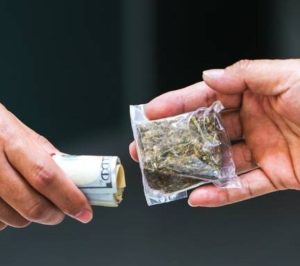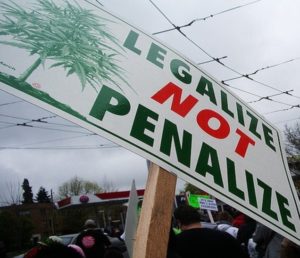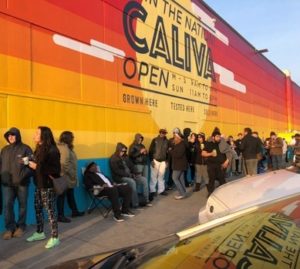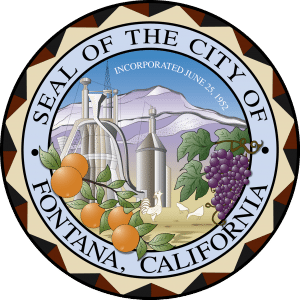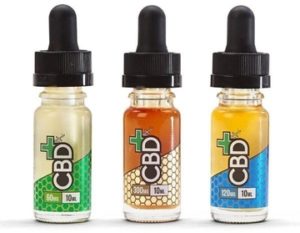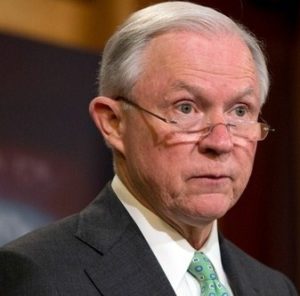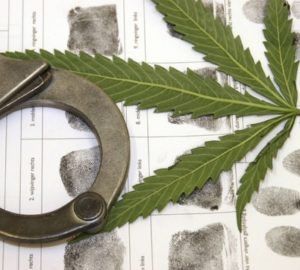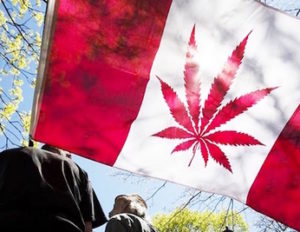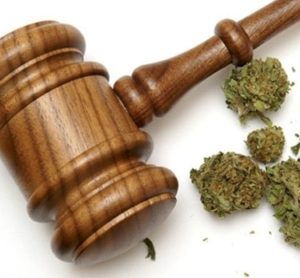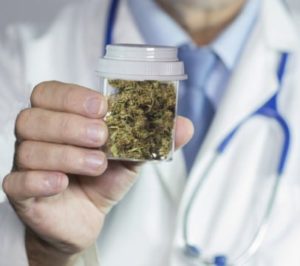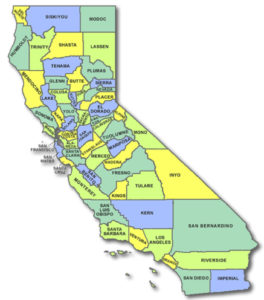Can I Purchase Cannabis from a Dispensary?
Alameda County is now allowing both recreational and medical dispensaries. The vote to expand access to cannabis took place on May 8, 2018. The new regulations haven’t been added to their online municipal code yet, but you can review the county’s announcements here.
Can I Get Delivery?
Alameda County now allows both recreational and medical marijuana delivery.
What Are the Rules for Growing My Own?
The county is continuing with its pilot program for commercial medical and recreational marijuana cultivation. The ordinance in control of the program doesn’t cover recreational growing or the medical growing in a 100 square feet allowed under state law.
These ordinances are still being developed and not entirely clear yet, so when in doubt, give them a call and ask.
Taxes
The county has not instituted taxes yet, but a plan is being developed and will likely be put to a vote in the near future.
County Contacts
Community Development Agency
224 W. Winton Ave., Room 110
Hayward, CA 94544
Phone: (510) 670-5333
Fax: (510) 670-6374
Planning Department
224 W. Winton, Room 111
Hayward, CA 94544
Phone: (510) 670-5400
Fax: (510) 785-8793
MMID Contact
Alameda County Public Health Department
1000 Broadway, Suite 500
Oakland, CA 94607
Phone: (510) 268-2977
eFax: (510) 268-7657
Contact: Sandy Adams
Email: sandy.dykes@acgov.org
Note: By Appointment Only
Last updated July 2018
Section 7.04.030, prohibited activities, states:
Commercial marijuana cultivation, marijuana processing and marijuana dispensaries shall be prohibited activities in the county, except where the county is preempted by federal or state law from enacting a prohibition on any such activity. No use permit, variance, building permit, or any other entitlement, license, or permit, whether administrative or discretionary, shall be approved or issued for the activities of marijuana cultivation, marijuana processing, marijuana delivery, or the establishment or operation of a marijuana dispensary in the county, and no person shall otherwise establish or conduct such activities in the county, except where the county is preempted by federal or state law from enacting a prohibition on any such activity for which the use permit, variance, building permit, or any other entitlement, license, or permit is sought. (Ord. 716 § 2 (part), 2016)
Can I Purchase Cannabis from a Dispensary?
No. The county banned commercial cannabis activity as soon as the passage of 2015’s MMRSA allowed for it, and they show no signs of letting up.
Can I Get Delivery?
Definitely not. Delivery used to be an effective workaround for counties where dispensaries are banned. However, Prop 64 allows for the banning of local deliveries.
What Are the Rules for Growing My Own?
The county has not yet updated its ordinances to reflect the changes in state law, but recreational cultivation appears to be indoor only.
County Contacts
Community Development
50 Diamond Valley Rd.
Markleeville, CA 96120
Phone: (530) 694-2140
Fax: (530) 694-2149
MMIC Contact
Alpine County
By appointment only, call (530) 694-2146
Business Hours:
Monday, 1pm – 4:30pm
Wednesday, 1pm – 4:30pm
Friday, 1pm – 4:30pm
Last updated July 2018
Can I Purchase Cannabis from a Dispensary?
Dispensaries are banned in Amador County.
Can I Get Delivery?
Delivery isn’t mentioned in their code of ordinances at all. It’s simply banned under the blanket term, “marijuana cultivation and related activities.”
What Are the Rules for Growing My Own?
Cultivation is banned both indoors and outside, though a qualified patient or caregiver is exempt. Furthermore, caregivers are limited to no more than 12 plants, no matter the number of qualified patients they care for.
They do allow medical patients to use outdoor cultivation, as long as the site is at least 50 feet away from the nearest property line. The plot must also be at least 100 feet away from the nearest dwelling structure and not publicly visible. You can read the specific cultivation rules here.
County Contacts
Planning Department
810 Court St.
Jackson, CA 95642
(209) 223-6380
MMIC Program
Amador County
By appointment only, call (209) 223-6407
Business Hours:
Thursday 1pm – 4pm
Last updated July 2018
Butte county is still banning commercial cannabis.
Can I Purchase Cannabis from a Dispensary?
No. At the moment, Butte doesn’t allow any dispensaries.
Can I Get Delivery?
Both recreational and medical deliveries are legal in Butte County, but recreational marijuana deliveries must originate from outside of the unincorporated county area since all other adult-use licenses are prohibited in the county.
What Are the Rules for Growing My Own?
For personal adult-use cultivation, residents are limited to no more than six plants per residence.
For personal medical cultivation, the rules are a little more complicated. On small parcels, you‘re only allowed to grow on 50 square feet. If your parcel is less than half an acre, the grow must be inside a building no larger than 120 square feet. It must be on the same property as, but separate from, the primary residence. There are other requirements listed in the code.
All grows on land over half an acre may be outdoors, so long as they’re shielded from public view. The largest cultivation area allowed is 150 square feet, and any growth over 50 square feet requires two or more recommendations. You can read more about cultivation requirements here.
County Contacts
Development Services
Phone: (530) 538-7601
Fax: (530) 538-7785
Appointments
Building: (530) 538-7601
Planning: (530) 538-5359
Code Enforcement: (530) 538-6000
MMIC Contact
Cathy A. Raevsky, Director
Andy Miller, M.D., Health Officer
Vital Records Office
202 Mira Loma Drive
Oroville, California 95965
Phone: 530.538.7700
buttecounty.net/publichealth
Activist Organizations
Last updated July 2018
Calaveras County chose to ban all commercial cannabis activity with the exception of medical dispensaries on January 10, 2018.
*Update: The Calaveras Cannabis Legal Defense Fund filed an injunction attempting to stop Calaveras County’s enforcement of the ban. This injunction was denied on June 15, 2018. The county is now enlisting help from the National Guard to enter private property and enforce their ban. This crackdown includes those farmers who paid millions in taxes and fees to become compliant with the county’s former legal commercial cultivation ordinance. Several people have been arrested as a result of this enforcement effort.
Can I Purchase Cannabis from a Dispensary?
Medical dispensaries are currently allowed in very limited amounts.
What Are the Rules for Cultivating My Own?
All cultivation is now limited to six plants, no matter whether for medical use or recreational use, and must be indoor. You can read more about the new cultivation rules here. They are much more restrictive than they used to be, so it is a very good idea to become familiar with them.
County Contacts
Calaveras County Cannabis Site
Calaveras County Administration
Address: 891 Mountain Ranch Rd, San Andreas, CA 95249
Hours: Closed ⋅ Opens 8AM Fri
Phone: (209) 754-6025
MMIC Program
By appointment only: Calaveras County (209) 754-6460
Activist Organizations
Last updated July 2018
Colusa County is under a complete ban of all cannabis activity that can legally be banned. This means that residents are limited to the state maximum of six plants, and there will be no dispensaries or deliveries allowed.
What Are the Rules for Growing My Own?
The county has extremely strict and expensive rules for personal cultivation. All cultivation must be indoors in an accessory structure on the cultivator’s permanent residence. The cultivator must have electrical and plumbing permits, even if it is under 120 square feet.
Additionally, the county reserves the right to require anything else they deem necessary and inspect the structure before cultivation may begin. You can read the specific cultivation rules here.
County Contacts
Planning Department
220 12th St.
Colusa, CA 95932
Phone: (530) 458-0480
Fax: (530) 458-0482
MMIC Contact
Colusa County does not participate in the MMIC program.
Last updated July 2018
Contra Costa’s has a total ban on all commercial cannabis activity, whether medical or adult use, and any outdoor growing.
What Are the Rules for Growing My Own?
Six plants or less may be grown inside only a private residence or an accessory structure to a private residence so long as it’s properly permitted for all electrical, plumbing and any other required permits.
County Contacts
Ruben Hernandez, Current Planning Principal Planner
30 Muir Rd.
Martinez, CA 94553
Phone: (925) 674-7785
Fax: (925) 674-7258
MMIC Contact
Contra Costa Health Services
By appointment only, call (925) 313-1126
County Activist Organizations
Last updated July 2018
Del Norte County has enacted a temporary ban on commercial cannabis activity intended to maintain their status quo until they can “come up with something better.” They actually had some of the most reasonable explanations for their decision, citing uncontrolled real estate speculation as their main concern.
It’s true that other counties are seeing sudden rises in property prices in those considering more permissive ordinances. The ban will be revisited in 2018, with local activists optimistic that an ordinance with commercial rights will eventually be adopted.
Can I Purchase Cannabis from a Dispensary or Delivery?
There may be a dispensary that still operates under Prop 215 rules, but any dispensaries would be operating in a very nebulous gray area. Since the code is very vague regarding activity allowed under Prop 215, some may consider challenging the commercial framework.
What Are the Rules for Growing My Own?
The county code doesn’t currently specify whether personal grows can be conducted indoors or outdoors.
County Contacts
Community Development Department
981 H Street, Suite 110
Crescent City, CA 95531
Phone: (707) 464-7254
Fax: (707) 465-0340
MMIC Contact
Department of Health & Social Services
880 Northcrest Drive
Crescent City, CA 95531
(707) 464-3191
Business Hours: Monday – Friday, 8am – 12pm; 1pm – 5pm
Last updated July 2018
El Dorado County adopted a temporary ban of all commercial cannabis activity while they consider establishing commercial activity rules. To this effect, they’ve established the Cannabis Advisory Committee. They have until Dec. 12, 2019 before they must make a final decision about their cannabis regulations.
Can I Purchase Cannabis from a Dispensary or Get Delivery?
According to the Mountain Democrat, “The ban does not impact medical cannabis dispensaries ability to operate as previously permitted under county Ordinance 4999; however, it does affect local growers who provide products to those dispensaries.” So, you’ll still have some access to cannabis with your MMIC for a while.
What Are the Rules for Growing My Own?
El Dorado County still operates under a nuisance ordinance for medical cultivation. They allow up to 200 square feet of medical cultivation in certain residential zones and up to 600 square feet in agriculturally zoned areas. Personal medical cultivation can take place outdoors in some zones, but all adult-use cultivation (up to 6 plants only) must take place indoors. If you have a medical card, and you want to see if your property qualifies for outdoor cultivation and how many square feet you can cultivate, check with the planning department first.
County Contacts
El Dorado County Planning Services
MMIC Contact
Department of Public Health Emergency Medical Services Agency
2900 Fair Lane Court
Placerville, CA 95667
(530) 621-6500
Business Hours: 8am – 5pm
By Appointment Only
Last updated July 2018
Fresno County has a decidedly hostile attitude toward medical cannabis, and it hasn’t gotten much better with the passage of Prop 64.
Can I Purchase Cannabis from a Dispensary or Get Delivery?
Dispensaries are explicitly banned in Fresno County. Dispensaries may still operate under Prop 215 rules, but enforcement is particularly harsh. Fresno city decided to allow state licensed medical cannabis businesses on Dec. 16.
What Are the Rules for Growing My Own?
You’re limited to the maximum six allowed by state law indoors only. The City of Fresno was considering limiting indoor medical marijuana cultivation further by establishing a definite cap on the state allowed six plants and wattage limits for indoor growers. However, this ordinance didn’t pass and the city council is currently back at the drawing board.
The county has openly pushed for bans like this in its cities, and many are choosing to ban up to the extent allowable by law along with the county. We were unable to find specific ordinances dictating limitations of building structures or codes for indoor cultivation–only language for an outright ban.
County Contacts
Fresno County Planning Department
MMIC Contact
Fresno County Health Department
1221 Fulton Mall, 1st Floor
Fresno, CA 93721
(559) 600-3434
By Appointment only
Tuesday 8:00 am – 12:00 pm
Thursday 12:30 pm – 4:30pm
County Activists
Fresno Cannabis Association
Last updated July 2018
All commercial cannabis activity is banned in Glenn County, including dispensaries and deliveries.
What Are the Rules for Growing My Own?
Residents are allowed only to grow the state-allowed maximum of six plants indoors in a structure that complies with all building codes and required permits.
County Contacts
Planning Department
777 N. Colusa Street
Willows, CA 95988
Phone: (530) 934-6540
Fax: (530) 934-6533
planning@countyofglenn.net
MMIC Contact
Health Service Agency
240 N. Villa Ave
Willows, CA 95988
(530) 934-6588
By Appointment Only
Last updated July 2018
Humboldt County allows all commercial cannabis activity and has some of the most progressive cannabis policies in the state.
Can I Purchase Cannabis from a Dispensary?
Both medical and adult-use dispensaries are allowed in the county.
Can I Get Delivery?
Absolutely.
What Are the Rules for Growing My Own?
The county has specific, fairly permissive rules for outdoor personal grows depending on parcel size and location, so look up the rules for your property here.
County Contacts
Cannabis Services Division
MMIC Contact
Department of Public Health
529 I Street
Eureka, CA 95501
(707) 445-6200
Monday – Friday, 8am – 5pm
County Activist Organizations
Last updated July 2018
Can I Purchase From A Dispensary Or Delivery?
Imperial County now allows both adult-use and medical deliveries and dispensaries. You can read their new cannabis ordinance here.
What Are The Rules For Growing My Own?
Personal cultivation is to take place indoor in residential zones only. The growing area can’t exceed 100 sq ft, and lighting is limited to no more than 50 amps. You can read the rest of the personal cultivation regulations here on page 2.
County Contacts
Imperial County Planning Department
MMIC Contact
Department of Public Health
935 Broadway
El Centro, CA 92243
(442) 265-1444
Monday – Friday, 9am – 12pm; 1pm – 4pm
Last updated July 2018
The Board voted on January 16, 2018 to adopt three ordinances that allow and regulate commercial cannabis activities. They became effective on February 16, 2018.
County Contacts
Michael Draper, Associate Planner: Inyo County Planning Department
(760) 878-0265
inyoplanning@inyocounty.us
MMIC Contact
Health and Human Services
207 A W. South Street
Bishop, CA 95314
(760) 873-7868
By Appointment Only
County Activist Organizations
Inyo County Cannabis Alliance
Last updated July 2018
In October, Kern County voted to ban all commercial cannabis activity, including cultivation. This ban applies to both recreational and commercial activity. The 28 legal MMJ dispensaries in the county will have up to a year to continue operating; they’ll even be issued temporary licenses to operate by the county and the state.
Update: Kern Citizens For Patients Rights has qualified a ballot initiative that would allow commercial medical cannabis activity in the county. There is already an initiative on the ballot in Bakersfield that will allow commercial cannabis activity there. The Bakersfield initiative was qualified by KCPR as well. So your cannabis vote in Kern County is vital this November.
Can I Purchase Cannabis from a Dispensary or Delivery?
For a limited time, you’ll still be able to access cannabis through the medical program, but don’t expect Kern County to play nice with the remaining facilities.
What Are the Rules for Growing My Own?
Outdoor growing is strictly forbidden. Patients and recreational users can grow up to their allowed six plants inside only.
County Contacts
Shawn Beyeler
Supervising Planner
BeyelerS@kerncounty.com
Suzanne Hansen
Planner
HansenS@kerncounty.com
MMIC Contact
Department of Public Health
1800 Mount Vernon Avenue
Bakersfield, CA 93306
(661) 321-3000
Monday – Friday, 8am – 5pm
County Activist Organizations
Kern Citizens for Patient Rights
Last updated July 2018
Kings County makes it explicitly clear that they’re banning every single use of cannabis to the full extent allowed by law. They even go to the point of confining smoking only to:
“a fully enclosed area of a private residence with the knowledge and consent of the person legally in possession thereof, and in a manner that is not in plain view from outside the residence, with no one present who is under the age of 21 or otherwise who does not consent to the smoking, ingesting, or consumption…”
Of course, they fail to make exceptions for a person under 21 who possesses an MMID. Hanford will allow cannabis business cultivation, but dispensaries are still outlawed.
Can I Purchase Cannabis from a Dispensary or Get Delivery?
Both dispensaries and delivery are explicitly outlawed in Kings County.
What Are the Rules for Growing My Own?
Growing area for cultivation is limited to a ridiculously small 32 feet, no matter how many people are cultivating at the residence, and is limited to a single area. Cultivation must be indoors, in a secure area, inside a primary residence or a detached building at the primary residence.
County Contacts
Indoor Cultivation Registration
MMIC Contacts
Department of Public Health – Vital Statistics
330 Campus Drive
Hanford, CA 93230
(559) 582-3211
Monday-Friday, 8am – 4pm
Last updated July 2018
Lake County is currently in the process of developing an ordinance to allow medical cultivation and collectives. However, the ordinance hasn’t been fully implemented. At the moment, the county only allows certifications which permit the state licensing process to continue while they assess the impact of recent laws.
Can I Purchase Cannabis from a Dispensary?
You can still purchase medical cannabis from a dispensary, but not recreational.
Can I Get Delivery?
You’ll still be able to get medical delivery in the county.
What Are the Rules for Growing My Own?
Don’t expect to grow outdoors in the Community Growth Boundaries or in residential areas on parcels less than an acre. Residents can grow up to six mature plants or 12 immature plants per patient, but only on property where the grower or a qualified patient (for collective use) resides. You can read the current ordinance here.
County Contacts
Code Enforcement
Robert Massarelli, Director
255 N. Forbes Street
Third Floor, Rm 323
Lakeport, CA 95453
Phone: (707) 263-2309
Fax: (707) 263-2225
MMIC Contact
Health Services Department
922 Bevins Court
Lakeport, CA 95453
(707) 263-1090
Tuesday, 10am – 12pm
Thursday, 10am – 12pm
County Activist Organizations
Last updated July 2018
Can I Purchase Cannabis from a Dispensary or Delivery Service?
Both commercial and non-commercial services are forbidden in Lassen County, with the exception of recreational and non-commercial medical cultivation.
What Are the Rules for Growing My Own?
Recreational cultivation is limited to six plants and must be grown indoors in an area that isn’t accessible to minors.
However, the county does allow cultivation of medical marijuana cannabis outdoors. Qualified patients and their caregivers are limited to a 250 square foot area and cultivation cannot be within 1,000 feet of the typical sensitive use areas. Outdoor medical cultivation is also limited to parcels larger than one acre. You can read more about their cultivation rules here.
County Contacts
Planning Department
707 Nevada St Ste 5,
Susanville, CA 96130
Phone: (530) 251-8269
MMID Contact
Lassen County Public Health
1445 Paul Bunyan Road
Susanville, CA 96130
(530) 251-8183
Tuesday, 1pm – 4pm
Last updated July 2018
Los Angeles County’s Office of Cannabis Management is planning on allowing commercial cannabis activity, but it’s going to take a while to develop regulations.
Update: Los Angeles County still hasn’t developed a comprehensive set of regulations to allow commercial cannabis activity. In fact, at their June 19, 2018 Board meeting, they developed a plan of attack to shut down the lingering unlicensed facilities in the county. You can watch the recorded proceedings here.
Can I Purchase Cannabis from a Dispensary or Get Delivery?
Los Angeles County currently bans all medical and non-medical cannabis businesses. The ban won’t be lifted until their comprehensive regulation framework is adopted. You can read answers to FAQs here at their Office of Cannabis Management website.
L.A. city allows both recreational and adult use dispensaries.
What Are the Rules for Growing My Own?
Residents can grow indoors or outdoors at single-family residences. No more than six plants are allowed, whether for personal or medical cultivation. Additionally:
- No outdoor cultivation is permitted within 600 feet of a library, park, school, daycare center or youth center.
- Outdoor cultivation is not permitted within a front yard, or within 10 feet of any property line.
- Cultivation areas must be surrounded by an opaque fence or wall at least six feet high.
- Plants may not exceed six feet in height.
You can learn more about personal cultivation rules here.
County Contacts
Office of Cannabis Management
MMID Contact
L.A. County Department of Public Health
Environmental Health
5050 Commerce Drive
Baldwin Park, CA 91706
Phone: (866) 621-2204
Monday – Friday, 8am – 4:30pm
County Activist Organizations
Last updated July 2018
Madera County is among the many that choose to prohibit commercial cannabis. Their recent proposed ordinance update in November is continuing the ban.
Can I Purchase Cannabis from a Dispensary or Delivery Service?
Both recreational and medical commercial cannabis businesses are prohibited, although the county’s ordinance does allow medical collectives compliant with SB420 rules.
What Are the Rules for Growing My Own?
Cultivation must be indoors either in a room in the house that’s no larger than 120 square feet, or in an area no larger than 120 square feet in a separate building. There’s no growing in commercial or industrial zones, and the cultivation location must be where the grower or provider resides.
The county also prohibits cultivation within 2,000 feet of a church, school or other public building. You can read more about the cultivation rules here.
County Contacts
Planning Department
200 W. 4th St. Suite 3100
Madera, CA 93637
Phone: (559) 675-7821
Fax: (559) 675-6573
MMIC Contact
County Public Health Department
14215 Road 28
Madera, CA 93638
(559) 675-7893
Mondays, 8:30 am – 11:30 am
Last updated July 2018
Marin County bans any cannabis business that would require a state license under the AUMA, except for medical delivery.
Can I Purchase Cannabis from a Dispensary or Delivery Service?
The county passed a delivery-only ordinance, approving up to four commercial medical delivery-only services.
What Are the Rules for Growing My Own?
Marin expressly prohibits outdoor cultivation for both medical and recreational use. And it’s a bad idea to grow GMO cannabis because it’s banned. They are still updating their regulations, so it’s probably best to contact the county for instructions before you set up any indoor cultivation for your allowed six plants. To find out more, you can contact their Program Manager, Inge Lundegaard at 415-473-7023. It is highly advised that you discuss your plans with them before you start as their ordinances impose misdemeanor penalties for some violations.
County Contacts
MMIC Contact
Department of Health & Human Services
Office of Vital Records
10 North San Pedro Road, Room 1014
San Rafael, CA 94903
(415) 473-3288
Monday – Friday, 9am – 12pm; 1pm – 4pm
County Activist Organizations
Last updated July 2018
Mariposa County prohibits “any activity and use within Mariposa County for which a license is required pursuant to CA Business and Professions Code Division 10, as it may be amended, including: commercial or not-for-profit cultivation, processing, manufacture, wholesale or
retail sale, and public consumption of marijuana or derivative products (Ordinance 2017-1129 and Resolution 17-678)”
What Are the Rules for Growing My Own?
Mariposa County allows you to grow your six state-allowed plants for recreational use either indoors or outside, so long as the area isn’t publicly visible.
They also have a fairly permissive policy compared to other counties for outdoor medical cultivation under the Compassionate Use Act. Up to 24 plants can be grown on a single parcel outdoors if two patients reside there. They even allow setback waivers if existing setbacks would pose a hardship for patients. There are some additional limits which you can read about here.
County Contacts
Planning Department
5100 Bullion St # 1
Mariposa, CA 95338
(209) 966-5151
MMIC Contact
Mariposa County Health Department
5085 Bullion Street
Mariposa, CA 95338
(209) 966-3689
Monday – Friday, 8am – 5pm and Thursday, by appointment only
Last updated July 2018
Mendocino County has completed their commercial cultivation ordinances, but they are still working on the ordinances that will allow other commercial cannabis activity.
What Are the Rules for Growing My Own?
Personal adult-use cultivation must now take place indoors on parcels less than ten acres, and is limited to six plants.
A patient cultivation site is limited to 100 square feet per patient, with a maximum of two patients per caregiver. You can read about the additional restrictions for personal cultivation and medical cultivation here.
County Contacts
MMIC Contact
Department of Public Health
1120 South Dora Street
Ukiah, CA 95482
(707) 472-2784
Tuesday, 2pm – 6pm
Thursday, by appointment only
Last updated July 2018
Merced County bans all commercial cannabis activity; however, the city of Merced itself allows all commercial activity, and since the unincorporated county allows deliveries into the unincorporated areas, access isn’t too limited.
Can I Purchase Cannabis from a Dispensary?
Dispensaries are banned.
Can I Get Delivery?
Merced county is allowing delivery of medical cannabis so long as the delivery service is state licensed outside of the county and registers with the sheriff first.
What Are the Rules for Growing My Own?
Merced county used to allow cultivation outdoors, but recently moved all cultivation indoors and limited personal medical grows to six plants. They rescinded outdoor growing at the urging of their sheriff, citing concerns over increased criminal activity.
There are additional restrictions on personal cultivation you should read about here before beginning grow. Personal medical grows have been severely restricted from their previous ordinance.
County Contacts
Planning Department
2222 M St.
Merced, CA 95340
(209) 385-7654
MMIC Contact
Department of Public Health
260 East 15th Street
Merced, CA 95340
(209) 381-1015
Los Banos: Tuesday, 1pm – 4pm
Merced: Wednesday, 9am – 4pm
Last updated July 2018
Modoc county bans all cannabis activity to the fullest extent of the law.
What Are the Rules for Growing My Own?
Medical cultivation is still limited to 12 plants total per patient for two patients maximum at the residence of the primary caregiver or the primary patient. Cultivation may be done indoors, but only in an accessory structure. You can read more about cultivation restrictions here. The county has not yet clarified cultivation rules for personal recreational grows.
County Contacts
Planning Department
203 W 4th St.
Alturas, CA 96101
(530) 233-6406
MMIC Contact
Department of Public Health
441 North Main Street
Alturas, CA 96101
(530) 233-6311
Monday – Friday, 8:30am – 5pm
By Appointment Only
Last updated July 2018
Can I Purchase Cannabis from a Dispensary?
Yes. Both medical and recreational dispensaries are allowed. Dispensary operation hours are from 9AM to 9PM.
Can I Purchase Cannabis from a Delivery Service?
No. “All sales and dispensing of cannabis and cannabis products shall be conducted in-person and entirely within the licensed premises of the cannabis retailer. The delivery of any cannabis or cannabis products by a licensee to a consumer
is prohibited within the unincorporated area of the County.” You can read the dispensary regulations here on page 28.
What Are the Rules for Growing My Own?
Primary caregivers who cultivate for others are required to register with the county, but otherwise, personal cultivation refers back to state law. This means that your 6 adult use plants can be grown outdoors in an enclosed, locked area. You can read the regulations here on page 12.
County Contacts
Planning Division
Mammoth Lakes Office
437 Old Mammoth Rd., Ste 220 (formerly Ste P)
P.O. Box 347
Mammoth Lakes, CA 93546
Phone: (760) 924-1800
Fax: (760) 924-1801
Bridgeport Office
Annex 1
74 N. School St.
PO Box 8
Bridgeport, CA 93517
Phone: (760) 932-542
Fax: (760) 932-5431
MMIC Contact
Mono County Health Department
437 Old Mammoth Road, #Q
Mammoth Lakes, CA 93546
(760) 924-1830
Monday – Friday, 9:00am – 5pm
By Appointment Only
County Activist Organizations
Last updated July 2018
Can I Purchase Cannabis from a Dispensary or Delivery?
Yes. Both adult use and medical dispensaries and deliveries are allowed in the county now. You can read their commercial cannabis ordinance here.
What Are the Rules for Growing My Own?
Cultivation for personal use is limited to six plants and 100 square feet. Personal medical cultivation is exempt from the county’s commercial cultivation licensing requirements so long as the cultivator receives no remuneration for the services. There are additional personal cultivation requirements that you can read here on page 28. Outdoor cultivation is prohibited.
County Contacts
MMIC Contact
Monterey County Health Department
Vital Records
1270 Natividad Road
Salinas, CA 93906
(831) 755-4520
By Appointment Only
County Activist Organizations
Last updated August 2018
Napa County hasn’t decided where they’ll fall on cannabis regulations. They’ve been holding a series of roundtables on the subject, but it’ll be well into next year before they even pass an ordinance covering personal cultivation.
The county has a temporary moratorium banning all commercial cannabis activity while they continue to discuss the issue. Learn more about existing personal medical marijuana cultivation rules here.
County Contacts
Planning Division
1195 Third St., 2nd Floor
Napa, CA 94559
Phone: (707) 253-4417
Fax: (707) 253-4545
MMIC CONTACT
Department of Public Health
2751 Napa Valley Corporate Drive, Bldg. B
Napa, CA 94588
(707) 253-4506
Thursday, 2pm-4pm
By Appointment Only
Last updated July 2018
Can I Purchase Cannabis from a Dispensary or Delivery Service?
Nevada County bans all commercial cannabis activity, but Nevada City has decided to allow one medical dispensary with options for more.
What Are the Rules for Growing My Own?
Nevada County’s code only allows indoor cultivation of personal recreational cannabis, and growers are limited to six plants. Stipulations include:
- The six plant limit applies to each private residence, no matter how many cultivators live there.
- Cultivation can take place inside a house, but the area must not be accessible to children.
- If setback limits for medical cultivation in the same area would prohibit cultivation, the grower will be exempt. Otherwise, they’re required to try to adhere to the same setbacks as medical cultivation.
- The six recreational plants cannot be added to medical plant totals.
You can read the medical cannabis cultivation rules here.
County Contacts
Planning Department
950 Maidu Ave.
Nevada City, CA 95959
(530) 265-1222
MMIC Contact
Department of Public Health
500 Crown Point Circle, Ste. 110
Grass Valley, CA 95945
(530) 265-1450
Monday – Friday, 8am – 5pm
By Appointment Only
County Activist Organizations
Last updated July 2018
In a pretty predictable move, Orange County voted to ban commercial cannabis activity in November, 2017. The county seat of Santa Ana, however, is allowing 30 recreational shops. Most other cities in Orange County have chosen to ban as well, with the exception of Costa Mesa, which has approved research, testing, processing and manufacturing in certain areas.
What Are the Rules for Growing My Own?
Personal cultivation “shall not exceed the number of living plants permitted by California Health and Safety Code Sections 11362.1 and 11362.2. Personal cannabis cultivation is limited solely to inside a person’s private residence, or inside an accessory structure to a private residence located on the grounds of the private residence, that is fully enclosed and secure. Personal cannabis cultivation is expressly prohibited outdoors upon the grounds of any private residence or any other outdoor location within unincorporated county.” You can read their ordinance here.
County Contacts
MMIC Contact
Department of Health
1200 N. Main Street #100-A
Santa Ana, CA 92701
(714) 480-6712
Monday – Friday, 8am – 12pm; 1pm – 4pm
County Activist Organizations
Last updated July 2018
Placer County doesn’t look like it’ll be allowing commercial cannabis activities any time soon. At the moment, all commercial cannabis activity is banned.
Can I Purchase Cannabis from a Dispensary?
Placer County doesn’t allow dispensaries, but the city of Colfax has voted to allow their sole medical marijuana dispensary to re-open.
Can I Get Delivery?
Commercial recreational activity and medical delivery are specifically prohibited. Primary caregivers are permitted to deliver medical cannabis to their own qualified patients only.
What Are the Rules for Growing My Own?
“A maximum of six plants on no more than fifty (50) square feet in total is allowed for outdoor cultivation of non-medical cannabis per parcel with a private residence.”
Basically, the code applies the same setbacks and cultivation size limitations to recreational cannabis as it does to medical use. You can read an overview of their cultivation limitations here.
County Contacts
Planning Department
3091 County Center Dr # 140
Auburn, CA 95603
(530) 745-3000
MMIC Contact
Community Health
11484 B Avenue
Auburn, CA 95603
(530) 889-7158
Monday – Friday, 8am – 11:30am; 1pm – 4:30pm
By Appointment Only
Last updated July 2018
Plumas County is still working on its draft ordinance to regulate commercial cannabis activity, personal cannabis cultivation and medical cultivation. Meanwhile, the county’s still under a moratorium.
Medical cultivation of up to 100 square feet is still permitted, and up to 500 square feet for patient caregivers (up to five patients). This ordinance has already been renewed and is temporary, so expect a change in the rules in 2018. You can read the full moratorium here.
County Contacts
MMIC Contact
Public Health Agency
270 County Hospital Road, Suite 111
Quincy, CA 95971
(530) 283-6330
By Appointment Only
Last updated July 2018
Riverside County has five cities that allow and regulate cannabis activity, but they chose to continue their moratorium until September, 2018. Exceptions are made for patients and caregivers, and all Californians are allowed to grow six plants indoors. Delivery into the unincorporated areas of the county is expressly banned as well.
What Are the Rules for Growing My Own?
Riverside County still allows indoor or outdoor cultivation of 12 plants per qualified patients, with cultivation for up to two patients per residence. Personal cultivation of six plants needs to be either indoors or in a fully enclosed, locked area.
You can read a summary of the rules here and ordinance 925, which still governs personal medical cultivation here. Commercial cultivation and all other commercial activity is banned per Ordinance 348 (page 37) for now.
County Contacts
Riverside Office
Riverside Co. Planning Department
4080 Lemon St.
P.O. Box 1409
Riverside, CA 92502-1409
(951) 955-3200
Palm Desert Office
Riverside Co. Planning Department
77588 El Duna Ct., Suite H
Palm Desert, CA 92211
(760) 863-8277
MMIC Contact
Department of Public Health
4065 County Circle Drive, 2nd Floor Room 207
Riverside, CA 92503
(888) 358-7932
Monday – Wednesday
7:30am to 12:00pm and 1:00pm to 3:30pm
County Activist Organizations
Last updated July 2018
All commercial activity is still banned for now, but residents do have a unique cultivation bonus in Sacramento County. Before Prop 64 was passed, medical patients were allowed to cultivate up to 9 cannabis plants only indoors. The county has decided to keep this allowance for personal, non-medical cultivation as well.
You can take a look at Sacramento County’s most frequently asked questions regarding their cannabis ordinances here.
County Contacts
Planning Department
827 7th St.
Sacramento, CA 95814
(916) 874-6141
MMIC Contact
Department of Health and Human Services
7001 A East Parkway, Suite 650
Sacramento, CA 95823
(916) 875-5345
Wednesday, 9am – 4pm
Friday, 9am – 4pm
By Appointment Only
County Activist Organizations
Last updated July 2018
Can I Purchase Cannabis from a Dispensary or Delivery Service?
All cannabis business activities are banned in San Benito County, including cannabis delivery and dispensaries.
What Are the Rules for Growing My Own?
Residents are limited to six plants unless the register as caregivers with the county. All cannabis must be grown indoors. You can read the personal cultivation ordinance here.
County Contacts
MMIC Contacts
Department of Health & Human Services
439 Fourth Street
Hollister, CA 95023
(831) 637-5367
1st & 3rd Tuesday of the month, 1:30pm – 4pm
Last updated July 2018
Adelanto may have created one of the state’s first serious commercial cannabis ordinances in Southern California, but the county itself is still banning it all. All dispensaries and deliveries are banned, including deliveries into the unincorporated parts of the county from dispensaries licensed outside of the county.
What Are the Rules for Growing My Own?
All cultivation must be indoors at the residence of the patient or provider. Indoor non-commercial medical grows are allowed up to 12 plants for one patient or a total of 24 plants for two patients.
County Contacts
MMIC Contact
Department of Public Health
340 North Mountain View Avenue
San Bernardino, CA 92415
(800) 782-4264
Monday – Friday, 9am – 4pm
By Appointment Only
Last updated July 2018
San Diego County chose to ban any new medical marijuana collectives in the city that weren’t approved before April 14, 2017. The remaining facilities left open must close by 2022 if a new ordinance allowing activity has not been passed by then. The ban sparked a lawsuit by several businesses that have already invested millions of dollars to comply with the county’s previous regulations.
The San Diego City Council has decided to fully embrace legalization, allowing all types of commercial cannabis activity allowed by state law. The Council’s most recent vote to allow testing, manufacturing and cultivation for recreational use passed in September.
The city already has recreational businesses which have received state temporary licenses as well. So no matter what San Diego decides, you’ll have access to legal cannabis on Jan. 2, 2018, until they sell out. La Mesa and Lemon Grove are also allowing dispensaries.
What Are the Rules for Growing My Own?
San Diego County hasn’t clarified personal cultivation rules yet, but the City of San Diego limits personal cultivation to indoor only and no more than 64 square feet are allotted for six plants. CO2 is prohibited for cultivation or processing. You can read the city’s full ordinance here. Personal cultivation rules are on page 3.
County Contacts
Planning Department
5510 Overland Ave.
San Diego, CA 92123
(858) 694-2960
MMIC Contact
Public Health Services
3851 Rosecrans Street, Suite 802
San Diego, CA 92110
(619) 692-5723
Monday – Friday, 8am – 4pm
County Activist Organizations
Last updated July 2018
San Francisco voted on Dec. 5th, 2017 to finalize regulations allowing for recreational sales. The ordinance is 101 pages long, so it would be difficult to summarize here. You can read it at this link.
Luckily, the city has a short rundown of the regulations here.
Can I Buy From a Dispensary or Delivery Service?
Yes, both adult use and recreational cannabis delivery and dispensaries are allowed in San Francisco.
What Are the Rules For Growing My Own?
“You can grow, harvest, dry, and process up to 6 cannabis plants in your home or in a locked and enclosed yard that is not visible to the public, and only if the property owner approves.”
County Contacts
MMIC Contact
Department of Public Health
101 Grove Street, Room 105
San Francisco, CA 94102
(415) 206-5555
Monday, Wednesday, Friday Only, 1pm – 4pm
County Activist Organizations
Last updated July 2018
San Joaquin County still has a ban in force, but expects to have new regulations developed very soon as they overturned their ban on commercial cannabis in August. Meanwhile, County Counsel Mark Myles insists that any commercial cannabis activity conducted in the county is criminal.
Update: The county has a tax measure on the November 2018 ballot and is moving forward with potential regulations. You can read these potential regulations here. Since the regulations are still in flux and could change any day, check with the county before you begin any new personal cannabis cultivation. You can read the potential new personal cultivation rules here. The proposed ordinance only allows six plants indoor per household and imposes a fine of $1,000 for each additional plant above six. No outdoor cultivation would be allowed. The ordinance is set for a vote on August 7, 2018, and if approved, would become effective 30 days later.
County Contacts
Mark Myles: San Joaquin County Counsel
(209) 486-2980
jmyles@sjgov.org
MMIC Contact
San Joaquin County
Public Health Services
1601 E. Hazelton Avenue
Stockton, CA 95205
(209) 468-3404
Monday – Friday, 8am – 5pm
By appointment only
Last updated July 2018
Can I Purchase Cannabis from a Dispensary or Delivery?
Currently SLO only allows for medical and adult-use delivery (Type 9 state license). Their ordinance prohibits brick and mortar dispensaries.
What Are the Rules for Growing My Own?
“Personal Cultivation. Six cannabis plants, grown indoors, per dwelling unit, for personal use, are exempt from obtaining a land use permit. Six cannabis plants, grown indoors, per site, by a caregiver are exempt from obtaining a land use permit. Caregivers are required to obtain a County business license. No outdoor personal or caregiver cultivation is allowed.”
All others cultivation activity will be required to obtain a commercial license.
County Contacts
MMIC Contact
Department of Public Health
2191 Johnson Avenue
San Luis Obispo, CA 93401
(805) 781-5514
Monday – Friday, 8am – 4pm
County Activist Organizations
Last updated July 2018
San Mateo County voted to allow commercial cultivation, but their interim ordinance bans commercial cannabis dispensaries. The ordinance does not ban deliveries into the county from dispensaries licensed in other municipalities, so this provides an option for residents who wish to purchase adult use and medical cannabis without driving long distances to the nearest dispensary.
What Are the Rules for Growing My Own?
Under the ban,
“indoor planting, cultivation, harvesting, drying, or processing of marijuana plants for nonmedical use is limited to residential districts, is limited to six (6) plants per residence, and must be entirely for the personal use of a resident of the residence who is twenty-one (21) years of age or older. The County reserves the right to enact regulations regarding the indoor cultivation of marijuana at a later date.”
County Contacts
Planning Department
455 County Center
Redwood City, CA 94063
(650) 363-4161
MMIC Contact
Health System
Office of Vital Statistics
225 37th Avenue, Room 11
San Mateo, CA 94403
(650) 573-2395
Monday – Wednesday, 8am – 5pm
Thursday, 8am – 4pm
Friday, 8am – 5pm
Last updated July 2018
Can I Purchase From a Dispensary or Delivery Service?
Santa Barbara County now allows all commercial cannabis activity, including recreational and medical dispensaries and delivery services.
What Are the Rules for Growing My Own?
Cultivation of your six plants must take place inside a “legally established, secure dwelling or an enclosed, legally established, secure building that is accessory to a dwelling.” Only residents 21 and over can cultivate. You can view their frequently asked questions here.
County Contacts
MMIC Contacts
Department of Public Health
345 Camino Del Remedio, Room 320
Santa Barbara, CA 93110
(805) 681-5150
Monday – Friday, 9am – 11am; 1pm – 4pm
County Activist Organizations
Last updated July 2018
Currently, recreational and medical commercial cannabis is prohibited under a temporary ban that can be extended for up to two years. The county has a frequently asked questions page regarding ordinances. The city of San Jose allows its medical marijuana dispensaries to sell recreational marijuana, so county residents will be able to shop there instead.
Can I Get Delivery?
No. Delivery to addresses in the unincorporated county are banned.
What Are the Rules for Growing My Own?
The county has relatively complex personal cultivation rules so you’ll need to review them thoroughly before you start. In short, the regulations allow residents to:
- Grow cannabis indoors, for non-medical purposes: no more than six plants, subject to reasonable regulations. They must be grown within a single space no larger than 50 square feet in a single room or in a fully-enclosed and secure accessory structure.
- Grow cannabis indoors, for medical purposes: a single layer of plants in a space no larger than 50 square feet, in a single room or in a fully-enclosed and secure accessory structure, subject to reasonable regulations.
- Grow outdoors, for medical purposes: up to twelve plants, subject to reasonable regulations.
County Contacts
Planning Department
70 W Hedding St.
San Jose, CA 95110
(408) 299-5770
MMIC Contact
Department of Public Health
976 Lenzen Avenue, Second Floor
San Jose, CA 95126
(408) 792-5065
By Appointment Only
County Activist Organizations
Last updated July 2018
Can I Purchase From a Dispensary?
Yes. Santa Cruz County allows both medical and recreational dispensaries.
Can I Get Delivery?
No. The county only allows store-front dispensaries.
What Are the Rules for Growing My Own?
A qualified patient or a person holding a valid identification card, or the designated primary caregiver of that qualified patient or person, may cultivate cannabis in an amount not to exceed more than 100 square feet of total garden canopy, as measured by the combined vegetative growth area.
All personal adult use cannabis must be grown indoors, which can include an accessory greenhouse. You can view the personal adult-use cultivation regulations here.
Taxes
Santa Cruz County charges a 7% tax for all cannabis businesses. This will set the total retail tax for adult use at 30.5% (15% excise, 7% local and 8.5% state sales tax). Total medical retail tax will be 22% (15% excise and 7% local).
County Contacts
Planning Department
701 Ocean St,
Santa Cruz, CA 95060
(831) 454-2580
MMIC Contact
Santa Cruz County Health Services Agency
Medical Marijuana Program
Santa Cruz, CA
(831) 454-3431
Call for appointment and directions
Tuesday, 1pm – 4pm
Wednesday, 1pm – 4pm
County Activist Organizations
Last updated July 2018
Shasta County prohibits all commercial cannabis activity.
Can I Get Delivery?
Non-commercial medical delivery is allowed in the county, but commercial deliveries are prohibited.
What Are the Rules for Growing My Own?
The county has some extremely restrictive cultivation rules for medical cannabis, requiring the construction of a fully compliant accessory structure for a maximum of 12 plants. Their ordinance doesn’t address personal adult-use cultivation.
County Contacts
Planning Department
1855 Placer St # 103
Redding, CA 96001
(530) 225-5532
MMIC Contact
Health and Human Services
Office of the Director
2615 Breslauer Way
Redding, CA 96001
Last updated July 2018
Sierra County bans all commercial cannabis activity in the county. However, they provide a specific exemption for delivery services. Therefore, residents can order both adult-use and medical cannabis via delivery in the unincorporated areas of the county.
What Are the Rules for Growing My Own?
Compared to other counties, Sierra County now has one of the most permissive growing ordinances in the state. It allows medical cannabis patients to grow up to 18 plants outdoors, and caregivers to grow up to 72 total for four patients. There county attempted to pass an ordinance that would have greatly restricted cultivation, but it was soundly defeated by a successful referendum challenge. You can read the rest of Sierra’s cultivation rules here.
County Contacts
Planning Department
101 Courthouse Sq,
Downieville, CA 95936
MMIC Contact
Department of Health
202 Front Street
Loyalton, CA 96118
(530) 993-6701
By Appointment Only
County Activist Organizations
Last updated July 2018
All commercial cannabis activities are prohibited by moratorium in Siskiyou County. This moratorium was extended yet again on July 10, 2018 for another year.
What Are the Rules for Growing My Own?
Only non-profit collective cannabis cultivation is allowed. However, the current sheriff has declared an emergency over the influx of Hmong growers. Enforcement efforts are still in full force against local growers. Some say the sheriff’s enforcement attempts are racially motivated, but whatever their motivation, cultivation limitations should be taken very seriously.
County Contacts
Planning Department
806 S Main St.
Yreka, CA 96097
(530) 841-2100
MMIC Contact
County Public Health and Community Development
806 South Main Street
Yreka, CA 96097
(530) 841-2134
By Appointment Only
Last updated July 2018
Solano County is considering commercial cannabis businesses, but they have not made a decision yet. Meanwhile, all commercial cannabis businesses are prohibited by their moratorium. Expect changes to their ordinances in the very near future.
What Are the Rules for Growing My Own?
The county allows patients to cultivate 100 square feet indoors only for their personal medical use. They also allow primary caregivers up to 500 square feet indoors only for up to five patients (100 square feet per patient).
Personal adult use cultivation is limited to six plants in 100 square feet area indoors. They’re considering a new proposed ordinance that will allow medical or adult use cultivation indoors, outdoors or in an accessory structure, but the ordinance has not been voted on yet.
County Contacts
Last updated July 2018
Sonoma county has taken a very proactive approach toward the new cannabis regulations by providing comprehensive information links for frequently asked questions and policy changes. There’s also a link for residents to check their city ordinances. A recent news story reports that cannabis businesses are flocking to Santa Rosa because of these welcoming regulations.
Can I Purchase Cannabis from a Dispensary?
Sonoma County is allowing no more than nine medical cannabis dispensaries. Adult-use dispensaries and deliveries are still prohibited.
Can I Get Delivery?
Medical only.
What Are the Rules for Growing My Own?
Sonoma has a very clear cut fact sheet regarding their personal cultivation regulations. Currently cannabis can be grown outdoors anywhere except multi-family units or R2 and R3 residential zones. Outdoor grows can’t be visible from public streets or walkways and can’t be located in front or side yard setback areas.
Indoor grows must be in a separate, accessory structure that complies with all building codes. You can check the link for a more in-depth description of the regulations.
County Contacts
MMIC Contact
Department of Public Health
275 Beck Avenue, MS 5-185
Fairfield, Ca 94533
(707) 784-8060
Business Hours:
Monday – Friday, 8am – 3:30pm
Activist Groups in the Area
Last updated July 2018
Stanislaus County is fully embracing the commercial sales of recreational and medical cannabis. They will be offering every type of permit that the state allows.
Can I Purchase Cannabis from a Dispensary or Delivery?
You definitely will, but Stanislaus has not solidified its selection process yet. Expect the county to begin issuing permits around the middle of 2018, so you should be able to make commercial purchases by fall. Meanwhile, until they open up, cannabis activities are prohibited.
What Are the Rules for Growing My Own?
Oddly, cannabis cultivation for any purpose is supposedly prohibited in the county as well, but likely the ordinance needs to be updated to reflect current state law. Title 9 Chapter 9.86.050 “Cannabis cultivation for any purpose is prohibited in the unincorporated areas of the county. (Ord. CS 1170 §2, 2016).”
County Contacts
Last updated July 2018
Sutter County bans all commercial businesses and bans dispensaries and delivery. There has been recent talk about moving toward commercialization in the county, but the item was pulled from the agenda. It should come back to the agenda soon.
Sutter is also one of only two counties in the state (the other one is Colusa), that won’t issue an MMID, which makes it literally impossible for residents of the county to qualify for the state’s tax exemption even if they are medical use and in need.
Personal cultivation rules for Sutter are much the same as they are for Tehama, in that they have very stringent power requirements and the use of an accessory structures is required. Growers must also notify the county of their intent and have all improvements inspected and approved by the county. You can read more about the requirements for personal and recreational grows here.
County Contacts
Planning Department
1130 Civic Center Blvd.
Yuba City, CA 95993
Phone: (530) 822-7400
Fax: (530) 822-7109
Last updated July 2018
Tehema County is extremely restrictive and has only gotten more so with Prop 64. Dispensaries are banned. Commercial cannabis activity is banned. For all intents and purposes, Tehema’s ordinance imposes an outright ban on all cultivation including the state-allowed amount.
Medical patients could once grow 12 plants, but are now limited to six along with recreational growers. This is a moot point, however, since all grows must be inside a county-approved accessory structure. The maximum electrical panel allowed for the structure is only 50 amps. Generators aren’t allowed, and all electrical work must be inspected and approved. Light systems are limited to 1,200 watts.
Worse, even though the cultivation occurs in a secured, alarmed, fully enclosed structure shielded from public view with filtration systems, the edge of the property line where the cannabis is being cultivated cannot be within 1,000 feet of a school, school bus stop, school evacuation site, church, park, child care center, or youth oriented facility–unless the grower can somehow obtain a waiver to grow after building a several thousand dollar accessory structure.
In other words, Tehama county is effectively under a complete ban. The good news is that Tehama is in the process of developing an alternative commercial ordinance with input from the community. You can read the proposed ordinance starting on page 321 of this agenda packet.
County Contacts
Planning Department
444 Oak St # I
Red Bluff, CA 96080
(530) 527-2200
Last updated July 2018
Trinity County has decided to embrace legalization and adopted a commercial cultivation ordinance to that effect in October. They still haven’t created an ordinance to legalize dispensaries or other commercial cannabis activities yet.
What Are the Rules for Growing My Own?
It’s against the law to grow GMO crops in Trinity too, so make sure your cannabis is not genetically modified. The current personal medical marijuana ordinance is not up-to-date yet because it limits anyone with less than one acre to two plants, but you can read their existing rules here. There are no prohibitions on growing the six plants outdoors for personal use yet.
County Contacts
Last updated July 2018
Currently, Tulare County is currently banning all commercial cannabis activity. However, the cities of Woodlake and Farmersville will be allowing full medical and recreational sales. Businesses won’t be ready to open at the beginning of the year, but should be opening within a couple of months.
What Are the Rules for Growing My Own?
Like many counties, Tulare has not yet codified personal cultivation restrictions. Medical patients are allowed to grow up to six mature plants or 12 immature plants for their own use.
County Contacts
Planning Department
5961 S Mooney Blvd
Visalia, CA 93277
(559) 733-6254
Last updated July 2018
Tuolumne County is reversing its permissive stance on cannabis cultivation to severely restrict medical access. They voted in September, 2017, to ban all outdoor cultivation and reduce the number of indoor plants to six, no matter whether they are for medical use or recreational.
Currently Tuolumne’s residents are allowed to grow up to 24 plants indoors and 12 outdoors for one patient, and up to 24 outdoors for two patients, but don’t expect this ordinance to remain intact. Currently dispensaries and other commercial activity is banned in the county as well. Sonora, the county seat, is considering an ordinance that will allow commercial activity.
County Contacts
Planning Department
A.N. Francisco Building
48 Yaney St.
Floors 3 and 4
Sonora, CA 95370
Phone: (209) 533-5633
Fax: (209) 533-5616
MMIC Contact
Department of Health
20111 Cedar Road N
Sonora, CA 95370
(209) 533-7401
Business Hours:
Monday – Friday, 8am – 5pm
County Activist Organizations
Last updated July 2018
Currently, commercial sales are banned, but Ventura’s code specifically allows medical cannabis dispensaries and deliveries that don’t require a commercial license. Port Hueneme is set to become the first city in Ventura County to allow commercial adult use and medical cannabis businesses, so residents should expect to see improvement to access soon.
Additionally, its citizens are allowed to cultivate their six plants for personal use outdoors while most incorporated and unincorporated areas of the county do not.
What Are the Rules for Growing My Own?
Ventura County’s cultivation ban does not apply to medical patients. There was an interim ordinance banning outdoor cultivation for recreational purposes, but it’is unknown if that’s been continued. The ordinance has not yet been properly amended to specifically address personal cultivation.
County Contacts
Planning Department
800 S Victoria Ave.
Ventura, CA 93009
(805) 654-2488
MMIC Contact
Ventura County Public Health
2220 East Gonzales Road Suite 200
Oxnard, CA 93036
(805) 981-5301
Business Hours:
Monday – Friday, 9am – 4pm
By Appointment Only
County Activist Organizations
Last updated July 2018
Yolo County was originally leading the pack to legalization, signing on for an experimental track and trace program and allowing large medical grows. Now they’re considering a complete 180 on their policies. Talk of a total ban is very recent, so Yolo could fall in either direction. It won’t be known until some time later in 2018 what direction the county will choose.
Can I Purchase Cannabis from a Dispensary or by Delivery?
Yolo County only allows commercial medical cultivation, but the city of Davis is going full commercial. You will be able to purchase recreational cannabis from four dispensaries or via delivery once the city and state completes their licensing process.
What Are the Rules for Growing My Own?
Yolo county allows for commercial cultivation of up to one acre. The code addresses restrictions for cultivation here, but expect that these ordinances will change in the near future.
County Contacts
Planning Department
292 W Beamer St.
Woodland, CA 95695
(530) 666-8775
MMIC Contact
Department of Health
137 North Cottonwood Street, Suite 2100
Woodland, CA 95695
(530) 666-8645
Business Hours:
Monday – Friday, 8am – 5pm
County Activist Organizations
Last updated July 2018
Yuba County’s cannabis rules have been a hotly contested issue since 2011, and issues don’t look to be settled yet.
Can I Purchase Cannabis from a Dispensary or Delivery?
Yuba County will not allow any commercial cannabis activity at this time. Marysville was considering allowing commercial activity, but it looks like they will decide against it. They have approved two medical marijuana dispensaries, but it is still unknown when they will open.
What Are the Rules for Growing My Own?
Yuba County has some of the most severe cannabis regulations in the state. The only new relief given by their most recent ordinance is that cultivation can take place in a house or accessory structure, rather than a fully permitted accessory structure only.
Whether for medical or recreational purposes, personal grows are limited to six plants only, whether mature or immature, and no matter how many qualified patients live on the property. You can read more of Yuba’s cultivation ordinances here.
County Contacts
Planning Department
915 8th St., Suite 123
Marysville, CA 95901
Phone: (530) 749-5470
Fax: (530) 749-5434
planning@co.yuba.ca.us
MMIC Contact
Yuba County Health and Human Services
5730 Packard Avenue 100
Marysville, CA 95901
(530) 749-6366
Business Hours:
By Appointment Only
Last updated July 2018
Further Reading
Want to stay up-to-date on the latest legal changes that’ll affect your cannabis use? Read these articles and be ready for the new marijuana business arriving this year.
- How to Get a Medical Marijuana Card in 2018
- The Complete Q&A List for California’s 2018 Cannabis Regulations
- 2018 Brings New Challenges to the Federal Government’s Cannabis Law
- Jeff Sessions Rescinds Cole Memo

